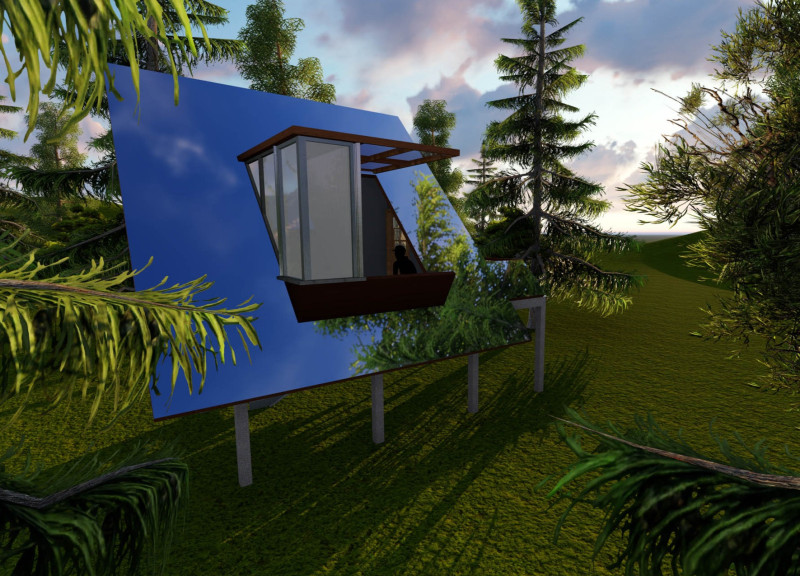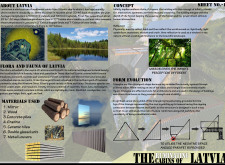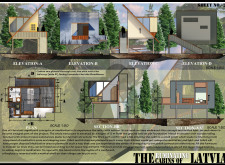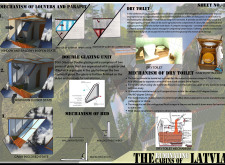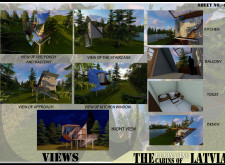5 key facts about this project
The design project located in Latvia demonstrates a thoughtful connection with its surrounding natural environment. The cabins are created to offer functional living spaces while promoting a sense of tranquility. The overall concept centers on infinity, representing an ongoing relationship with nature. The structures are elevated to provide views of the nearby Bezdibene lake while ensuring minimal disruption to the forest.
Conceptual Framework
The foundation of the design is based on endless interaction with the landscape. This idea is expressed through reflective surfaces that allow for light and connection with the outdoor environment. The mirrors are more than decorative; they help visitors become aware of their surroundings, encouraging a deeper connection to nature.
Spatial Organization
The cabins are arranged across the site, each serving distinct purposes such as meditation and relaxation. Large windows are installed in every cabin, allowing natural light to flood in and offering clear views of the forest and lake. This design fosters a strong relationship with the outdoors, which is essential for creating a peaceful environment for reflection.
Sustainability and Waste Management
An important feature of the design is its commitment to sustainability, particularly through the use of dry toilet systems. These toilets do not require water for flushing, allowing for effective waste disposal while reducing environmental impact. By separating urine and feces, the project facilitates composting, providing valuable nutrients for local agricultural practices and demonstrating a clear focus on ecological responsibility.
Material Selections
The materials chosen for the project include mirrors, wood, concrete piles, granite, ceramic tiles, double-glazed units, and metal louvers. Each material serves a specific purpose, selected for durability and natural compatibility with the landscape. The materials enhance the overall visual appeal while ensuring the structures withstand the region’s climate.
The cabins incorporate modular furniture, allowing flexibility in how the spaces are used. Features such as porches and overhangs provide shaded areas for enjoying the outdoors, adding to the overall connection between the built environment and nature.


